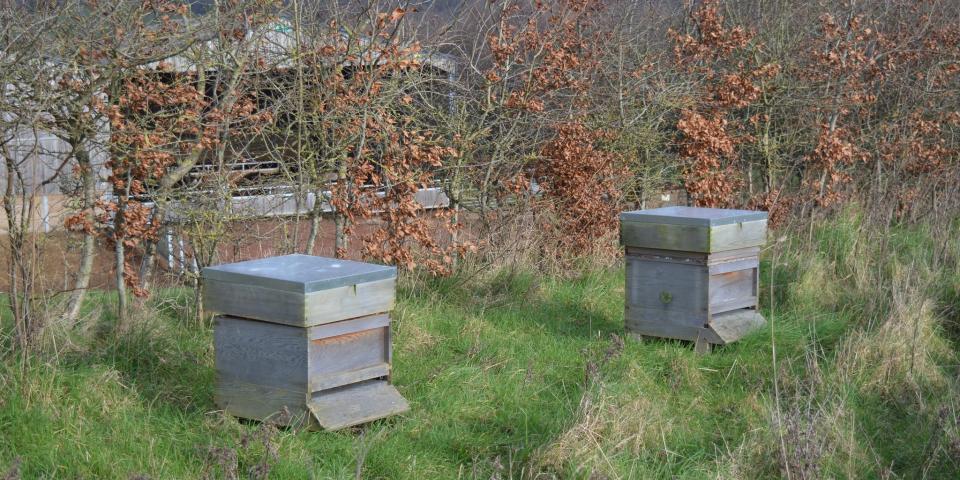- In:
- Posted By: beekeeper
- Comments: 0

It's official, I'm now a member of the British Beekeepers' Association and this week I went along to the first Exeter branch Beginners' Beekeeping Course session along with another 20-30 people from around the area all budding beekeepers. The course itself runs from January to April when we'll get to meet bees for real at the apiary and our introduction is looking at hives and equipment. In preparation our course tutor asked us to research ''Bee Space' as well as familiarise ourselves with beehives in current use today.
Our course tutor is David Packham, himself a beekeeper for 37 years. He is extremely knowledgeable and has a wonderful way of teaching to make the course rewarding and enjoyable, so thank you David!
David's passion for bees flows throughout the evening as we learn about all the different types of beehives from the 'traditional' looking white wooden hives we see in magazines or on cards through to those used by commercial beekeepers.
I find myself totally drawn in and writing copious notes wanting to soak up as much information as possible, not wanting to miss anything (by the way, David emailed us his presentation the next day) so nothing missed. At the end of the two hours, I was literally buzzing with excitement - honestly!
I'd love to have bees at the bottom of our garden - possibly next year. But in the meantime, I have a great opportunity to colonise a pair of 'National' hives at The Donkey Sanctuary where I work that need resurrecting after the bee colony collapsed.
There's a fair amount of work to clean these hives up by the look of things. On the other hand, it might be worth just replacing the frames in the brood boxes with new ones as the hives themselves are dry inside and in good conditional. As a newbee beekeeper, one hive is going to be ample to master the art so will start small with just one of the beehives.
Over the past few days my thoughts have turned to what food the bees will need. Quite timely as it's one of the questions David asked us to research in preparation for next week's session. So our homework between now and then is:
- What are the glands of the worker bees.
- Why are honey bees important to farmers and growers.
- List the major local flora from which honey bees gather pollen and nectar.
I'll let you know how I get on next week.
The image used above for this article was published under the terms of a Creative Commons License and is attributed to The Donkey Sanctuary.
